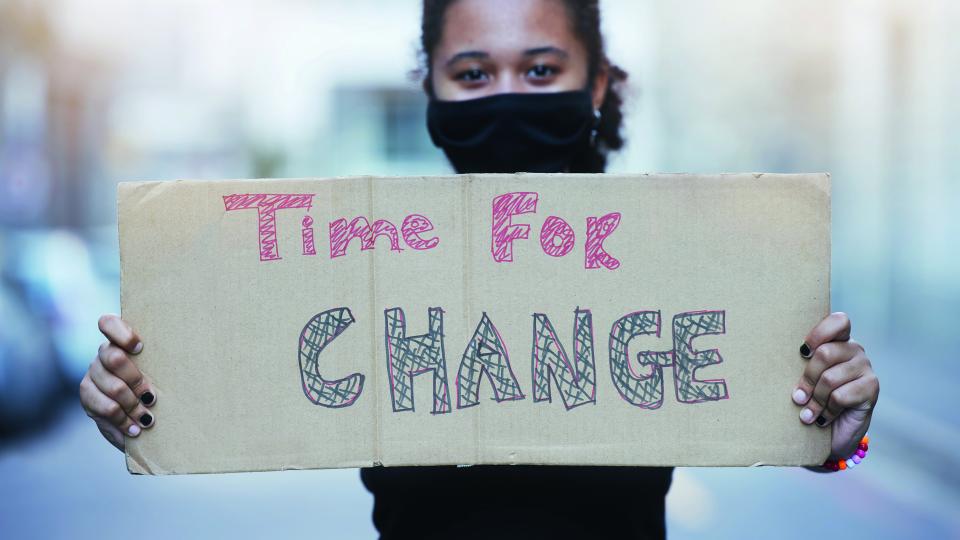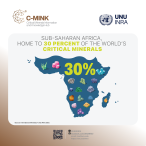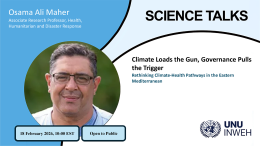A changing narrative on climate action has gained ground on social media in recent years: scientists, activists, and members of civil society are becoming increasingly vocal about the need for radical policy action to mitigate escalating climate change. A key demand is for a rapid and widespread shift away from fossil fuels.
Policies, especially those that deviate significantly from the status quo, are often preceded by shifts in public narratives that secure the buy-in of at least a minimum critical mass of stakeholders, including the general public. The most successful shifts in policy regimes are typically driven by carefully crafted, powerful narratives that contextualize issues and offer world views that go beyond specific policy areas.
Until recently, big oil companies have had the greatest influence over climate change-related narratives, contradicting and underplaying the threat of anthropogenic climate change, and undermining calls for strong climate action. Under their influence, the public narrative on climate action has traditionally favoured incremental change, with the onus for climate action placed on individuals. Fossil fuel companies have also been at the forefront of efforts that promote carbon capture and sequestration as viable means of lowering the atmospheric concentration of greenhouse gases, even though commercially viable technology for carbon capture and storage is still not available at scale.
In opposition to fossil fuel companies, climate activists – including many scientists and youths – are increasingly fighting back to redefine these narratives, calling for systemic change and massive climate action at scale. Global opinion-makers, including the UN Secretary-General, have also taken up this call.
Given their reach and penetration in our daily lives, social media platforms are often the battleground for competing narratives. While the reach of individual posts on platforms such as Twitter and Facebook depend on changing algorithms that are neither public nor transparent, in theory at least social media allows anyone with a digital device and an internet connection to voice their opinions.
Given their reach and penetration in our daily lives, social media platforms are often the battleground for competing narratives.
Analysing social media activity during COPs
Each year stakeholders typically escalate their advocacy and activism during the UNFCCC Conference of Parties (COPs) as governments gear up to negotiate global climate policy. COPs present an opportunity to observe different narratives play out on social media. To better understand the competing narratives around COPs, and their success in reaching and informing policymakers and climate negotiators, we collected and analysed over 16,000 tweets during and after COP26 to examine what people were talking about, who they were talking to, and to what end (Please note this data was downloaded before 2022-2023 changes in algorithms).
We expected that activists would be more vocal and active on Twitter than fossil fuel companies – given that the latter tend to have better access to decision-makers and would presumably rely less on social media for advocacy.
We tracked the competing narratives through an analysis of keywords and hashtags. For instance, hashtags that are likely to indicate views in support of corporate responsibility for climate change include ‘fossil fuels, ‘big oil,’ ‘climate crisis,’ ‘greenwashing,’ and ‘#PeopleNotProfit.’ We termed this group of tweets the ‘Corporate Responsibility’ (CR) group.
On the other hand, terms like ‘carbon footprint,’ ‘recycle,’ ‘reuse,’ and ‘sustainable consumption’ are more likely to be aligned with views on individual responsibility for climate change. We designated this group of tweets the ‘Individual Responsibility’ (IR) group. The groups refer to tweets rather than tweeters. The same person in different contexts could tweet with different sets of keywords.
The favourable usage of the term ‘carbon capture and storage' is also likely to come from entities which are seeking to avoid radical policy action in the present. This term was also included in the IR group.
Our COP26 dataset contained over 25,000 tweets from more than 15,000 unique users, downloaded between 9 November and 11 November 2021.
As expected, activists, particularly youth activists, were the most vocal on twitter, certainly more than fossil fuel companies. Many individuals from the CR group demanded that fossil fuel companies be held accountable, and those tweets tended to be directed at policymakers. Policymakers rarely, if ever, responded, neither replying to the original tweet nor using the same hashtag in a subsequent tweet. Most of the time, it appeared that activists were not being heard or acknowledged directly.
Further, there appeared to be significant divergences between the solutions proposed by individuals and civil society and those proposed by policymakers. These divergences have a significant historical baggage: policymakers have retained fossil fuel subsidies, and in general, have tended to favour incremental change. While some citizens and civil society organizations certainly do advocate against regulation of the fossil fuel industry, their numbers appeared much smaller in our dataset than those who advocated for regulation.

Implications for online climate activity
While the COPs provide spaces for civil society to participate, notably at summit side events, most activists do not have access to the area where negotiations take place. They also do not have the same level of access to policymakers that industry lobbyists do. Nevertheless, citizen voices online provide an important perspective in climate negotiations that should not be ignored.
UNFCCC and the COP28 Presidency have stressed that COP28 will be an ‘inclusive’ summit, promising ‘safe spaces’ for climate activists to assemble peacefully and make their voices heard. Could we also strive for a more inclusive online COP28? Social media may not provide a level playing field – tending to reward the powerful and influential – but our analysis suggests that a strategic and more targeted approach to social media engagement could help activists to amplify their narratives, and crucially, reach the decision-makers with the power to translate their ‘corporate responsibility’ narratives into negotiation positions and policy.
UNFCCC and the COP28 Presidency have stressed that COP28 will be an ‘inclusive’ summit, promising ‘safe spaces’ for climate activists to assemble peacefully and make their voices heard. Could we also strive for a more inclusive online COP28?
Below we outline two key steps, informed by our analysis, that activists can adopt to better influence climate policy negotiations.
Develop systematic approaches to strengthen activist voices: Policymakers who want to engage online are likely to be overwhelmed by the sheer volume and diversity of tweets during COPs. Systematic, transparent, and real-time analysis and summary of social media messaging, however, could cut through the large volume of information and help inform policymakers and negotiators. This more strategic engagement could be enabled by AI-supported social listening tools.
Target policymakers through coordinated messaging: A key finding from the analysis is that messaging by activists was neither coordinated nor strategic. Youth activists often posted on Twitter to find each other, ask questions about venues and logistics, and sometimes to vent, alongside advocating for specific policy positions. Negotiations could be influenced more effectively if civil society organizations and activists targeted policymakers with coordinated messaging. They could also tag national climate negotiators rather than heads of state or heads of government because the latter rarely monitor their own social media accounts or know the details of policy positions. At COP26, without a coordinated strategy, messaging in tweets by activists and organizations was lost in a mix of questions, information sharing, and observations.
Since our study, calls by citizens to address climate change through strong multilateral action have only increased. COP27 in Egypt saw agreement on setting up a loss and damage fund, and COP28 will take place in UAE over the next few weeks in the context of unprecedented floods and heatwaves. At stake are the very lives and existence of individuals and communities. Their perspectives should be at the heart of future climate goal-setting and their views for the future need to be heard.
The authors gratefully acknowledge without implicating in the errors and omissions, the support of Curtis Hendricks for data processing, and Katarina Kuai for her extensive comments.
Suggested citation: Eleonore Fournier-Tombs, Subhra Bhattacharjee., "Who Speaks and Who Listens Online," UNU-CPR (blog), 2023-11-23, 2023, https://unu.edu/cpr/blog-post/who-speaks-and-who-listens-online.





